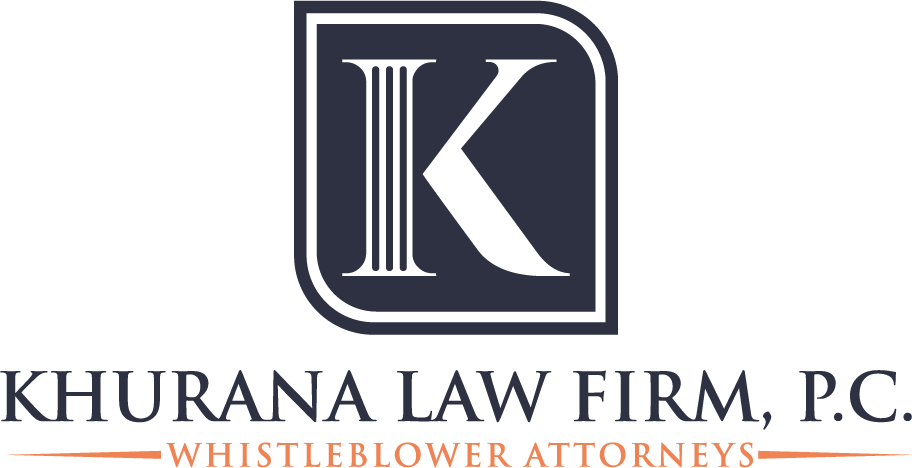Medicare fraud whistleblower

Medicare fraud whistleblower cases have become more prevalent in recent years due to a number of factors.
One major factor is the aging of the Baby Boomer generation, which has resulted in an increased demand for healthcare services. This increased demand has created more opportunities for healthcare providers to commit fraud by submitting false claims or overcharging for services.
Another factor is the growth of the healthcare industry, which has led to a proliferation of new providers and service offerings. This growth has made it easier for unscrupulous providers to set up fraudulent schemes and to hide their activities within the complex web of the healthcare system.
Additionally, there has been increased awareness and scrutiny of healthcare fraud by government agencies and the public. As a result, medicare fraud whistleblower are more likely to come forward with information about fraudulent activity, which has led to a rise in the number of whistleblower cases.
Finally, changes to laws and regulations have made it easier for medicare fraud whistleblowers to come forward and to receive protection from retaliation. These changes have encouraged more people to report fraudulent activity and have made it more difficult for companies to retaliate against whistleblowers.
Overall, the combination of increased demand for healthcare services, the growth of the healthcare industry, increased awareness and scrutiny of healthcare fraud, and changes to laws and regulations have all contributed to the rise of Medicare fraud whistleblower cases.
Today, health care fraud is ever-prevalent and continues to prove expansive. Medicare fraud whistleblower encompasses many different types of activity, from billing for services that were not performed to miscoding. Consequently, the government relies heavily on whistleblowers and rewards them significantly for reporting fraud. This requires the skill of an experienced medicare whistleblower attorney to guide people through a claim to ensure that individuals and entities are held accountable.
How Medicare Works
Because Medicare is a vast government program, it must rely on many private companies to help administer operations. The CMS (Center for Medicare and Medicaid Services) contracts with these outside contractors to process claims and determine compliance with the rules. Consequently, these outside contractors are the ones who are responsible for payments from Medicare, interpreting the rules, and policing the industry within CMS professional practices.
Medicare is a federal health insurance program that provides coverage for eligible individuals aged 65 and older, people with certain disabilities, and people with End-Stage Renal Disease (ESRD).
Here’s how Medicare works:
- Eligibility: To be eligible for Medicare, you must be 65 or older, or have a disability, or have End-Stage Renal Disease (ESRD).
- Enrollment: You can enroll in Medicare during the Initial Enrollment Period, which is the seven-month period that starts three months before you turn 65, includes the month you turn 65, and ends three months after you turn 65. You can also enroll during the General Enrollment Period, which is from January 1 to March 31 each year, or during a Special Enrollment Period if you qualify.
- Coverage: Medicare has four parts:
- Part A (hospital insurance): Covers inpatient hospital care, skilled nursing facility care, hospice care, and some home health care.
- Part B (medical insurance): Covers doctor visits, outpatient care, preventive services, and some medical equipment and supplies.
- Part C (Medicare Advantage): Allows private insurance companies to offer Medicare plans that provide all the benefits of Parts A and B, and often include additional benefits like dental and vision.
- Part D (prescription drug coverage): Provides coverage for prescription drugs.
- Costs: You generally pay a monthly premium for Part B and Part D, and may have to pay deductibles, coinsurance, and copayments depending on the services you receive. Part A is usually premium-free if you or your spouse paid Medicare taxes while working.
- Providers: Medicare allows you to choose from a network of healthcare providers who accept Medicare, including doctors, hospitals, and other healthcare facilities.
Overall, Medicare provides essential healthcare coverage for eligible individuals, helping them access the care they need to stay healthy and manage their medical conditions.
An Easy Way to Perpetrate Fraud
Most health care professionals bill Medicare through an electronic claims submission system t. Although meant to be efficient, it also offers an easy way to perpetrate fraud.
If a Medicare provider has figured out a way to falsify claims and submit those claims through the electronic claims system or intentionally miscode to get higher reimbursements from Medicare, then these are examples of Medicare fraud that may lead to a whistleblower suit.
Is Medicare Too Big?
The Medicare system basically relies on trust with its providers. Because of the vastness of the program, it becomes ripe for fraud. With close to a billion claims filed annually, with many different carriers and a multitude of providers, policing the system and following up on claim validity is difficult. Consequently, investigators must focus on services where most fraud occurs, on system flags pointing to providers who overtly bill higher than others in their area, and on whistleblower claims under the False Claims Act.
Protection and Incentives Under the False Claims Act
The False Claims Act allows individuals to come forward when they have information about Medicare fraud whistleblower and incentivizes this through a reward system for those people. Consequently, a successful whistleblower claim can recover substantial money for the government and also offer large rewards for a whistleblower if a recovery is made.
The False Claims Act (FCA) is a federal law that allows individuals to file lawsuits on behalf of the government against individuals and organizations that have defrauded the government. The FCA provides protection and incentives for medicare fraud whistleblowers who report fraud, waste, or abuse involving government funds.
Protection:
Under the FCA, medicare fraud whistleblowers who report fraud are protected from retaliation by their employers. If an employer retaliates against a whistleblower, the medicare fraud whistleblower can file a lawsuit and seek damages, including reinstatement to their job, back pay, and compensation for any damages they suffered as a result of the retaliation.
In addition, the FCA allows medicare fraud whistleblowers to file lawsuits anonymously. This provision helps protect whistleblowers from retaliation by their employers or other individuals who may be involved in the fraud.
Incentives:
The FCA provides financial incentives for whistleblowers who report fraud. If the government recovers funds as a result of the whistleblower’s information, the whistleblower is entitled to receive a percentage of the recovery. The percentage varies depending on whether the government intervenes in the case or not, but can be as high as 30% of the recovery.
The FCA also provides protection for medicare fraud whistleblowers who file lawsuits on behalf of the government, even if the government chooses not to intervene in the case. In these cases, the whistleblower is entitled to receive a larger percentage of the recovery, up to 30%, as a reward for bringing the case to the attention of the government.
Overall, the FCA provides strong protection and incentives for whistleblowers to come forward and report fraud involving government funds. These protections and incentives help ensure that the government is able to recover funds that have been fraudulently obtained and deter others from engaging in similar conduct in the future.
Getting Experienced Legal Advice
CMS rules can be extremely complicated. Consequently, someone who wants to file a whistleblower claim must get experienced and skilled guidance when pursuing a claim under the False Claims Act.
At the Khurana Law Firm, P.C., our skilled medicare fraud whistleblower attorneys have dedicated our careers to representing those who come forward to play a critical role in detecting, reporting, and preventing Medicare fraud. We provide a confidential, no-obligation consultation to discuss your case and let you know if we think there is a viable case. You pay nothing unless there is a financial recovery. If you have knowledge of Medicare fraud, contact us to schedule an appointment.
The foregoing is for general use and is not legal advice. ATTORNEY ADVERTISING. PRIOR RESULTS DO NOT GUARANTEE A SIMILAR OUTCOME.




